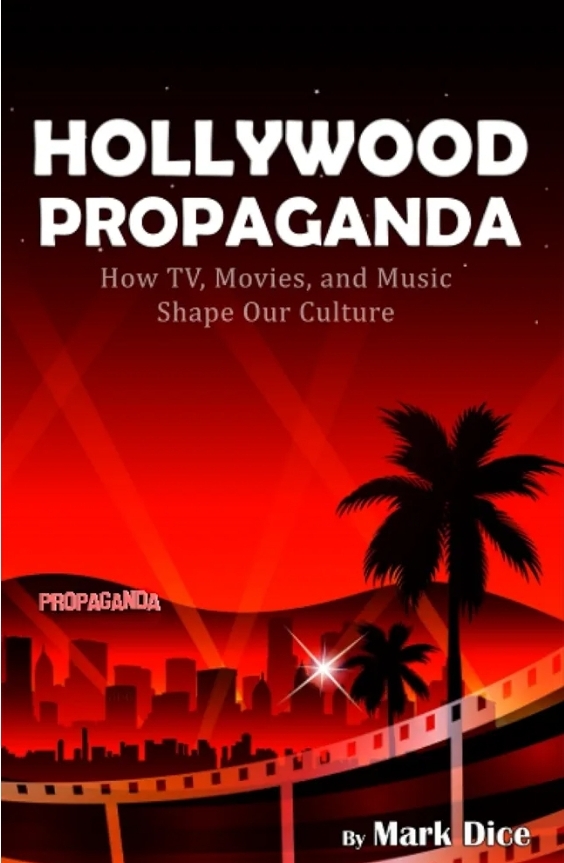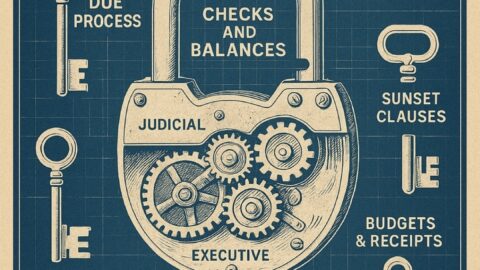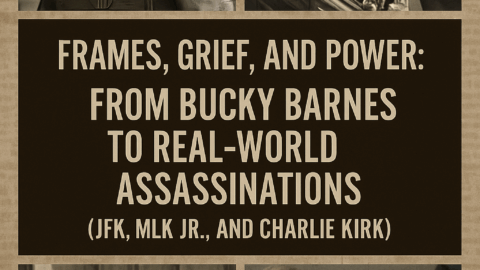Mark Dice’s Hollywood Propaganda: How TV, Movies, and Music Shape Our Culture delves into the way the entertainment industry—specifically Hollywood—functions as a powerful tool for shaping public opinion, cultural norms, and political ideologies. Dice argues that behind the glitz and glamour, Hollywood is actively promoting certain social and political agendas, often in line with liberal or progressive values, while marginalizing conservative viewpoints.
Key Themes and Ideas:
The Role of Entertainment in Social Engineering:
- Dice asserts that Hollywood functions as a form of social engineering, using movies, television shows, and music to promote specific values and ideals. He argues that the entertainment industry doesn’t just reflect culture; it actively shapes it by pushing certain political and social agendas.
- Hollywood’s influence is not limited to entertainment but extends to how people perceive morality, politics, and social issues, from gender identity to immigration.
Political Bias in Hollywood:
- The book highlights the political bias within Hollywood, particularly its overwhelming support for progressive and liberal causes. Dice examines how actors, directors, producers, and writers use their platforms to influence the public on issues like climate change, LGBTQ+ rights, and immigration.
- Hollywood celebrities often advocate for these causes through their work and public statements, creating a one-sided portrayal of political debates that diminishes conservative viewpoints.
Propaganda in Film and Television:
- Dice explores how movies and TV shows often contain hidden or overt propaganda designed to manipulate the audience’s views. He argues that themes such as feminism, anti-capitalism, anti-religion, and anti-patriotism are frequently embedded in storylines, subtly influencing how viewers think about these issues.
- He provides examples of popular films and TV shows where these themes are woven into the narrative, often without the audience fully realizing the extent of the ideological messaging.
Cultural Marxism and Hollywood:
- Dice links Hollywood’s progressive agenda to Cultural Marxism, a theory that suggests that the cultural elite is trying to reshape society by breaking down traditional values and institutions. According to Dice, Hollywood is at the forefront of this effort, promoting ideas that undermine traditional beliefs about family, gender, and religion.
- He argues that many of the social changes we see today, from the redefinition of marriage to the erasure of gender norms, are a direct result of decades of cultural conditioning through Hollywood’s output.
Liberal Elitism and Hypocrisy:
- The book criticizes the hypocrisy of Hollywood elites, who often preach about equality, environmentalism, and social justice while living extravagant lifestyles. Dice points out the contradictions between the messages promoted in their work and their personal behaviors, such as celebrities advocating for environmental causes while traveling in private jets or living in mansions.
- He also addresses how these same elites use their influence to silence or cancel conservative voices within the industry.
The Weaponization of Entertainment Against Conservatives:
- Dice emphasizes how conservatives are marginalized or outright demonized in Hollywood productions. He claims that conservatives are often portrayed as villains, ignorant, or backward in TV shows and films, contributing to negative stereotypes about right-leaning individuals.
- Conservative actors, directors, and producers who openly share their beliefs are often blacklisted or face difficulties finding work, creating a culture of fear and suppression within the industry.
Celebrity Activism and Political Endorsements:
- The book discusses the rise of celebrity activism, where Hollywood stars use their fame to promote political candidates or causes. Dice critiques how celebrities, with little expertise on complex political issues, influence their fan bases to vote or think in a certain way.
- He highlights the impact of endorsements during election campaigns, where high-profile figures can sway public opinion, particularly among younger audiences, and how this represents a dangerous form of manipulation.
Normalization of Radical Social Agendas:
- According to Dice, Hollywood normalizes radical social agendas by repeatedly presenting them as the new societal norm. He focuses on issues like gender fluidity, open borders, and socialism, arguing that Hollywood uses its platforms to make these views seem mainstream, even if they do not reflect the majority of public opinion.
- Dice believes that by consistently presenting progressive ideas as normal or superior, Hollywood has contributed to the shift in public perceptions and societal values over the past few decades.
Music Industry’s Role in Cultural Shaping:
- In addition to film and television, Dice examines the music industry’s role in shaping culture, particularly among younger generations. He argues that popular music is often filled with messages promoting promiscuity, drug use, materialism, and rebellion against authority, contributing to a breakdown in societal values.
- He discusses how the most influential pop stars often promote hedonistic or anti-establishment themes, further pushing the progressive agenda under the guise of entertainment.
Hollywood and the Globalist Agenda:
- Dice suggests that Hollywood is part of a broader globalist agenda aimed at eroding national sovereignty, promoting open borders, and creating a more centralized form of global governance. He argues that many of the themes promoted in Hollywood productions, such as the push for multiculturalism or climate change initiatives, align with globalist goals.
- He criticizes Hollywood’s portrayal of nationalism as inherently negative and argues that films and TV shows often present a distorted view of patriotism as something to be ashamed of or rejected.
The Solution: Independent Media and Cultural Awareness:
- Toward the end of the book, Dice encourages readers to support independent media that offers alternative viewpoints and challenges Hollywood’s progressive narrative. He emphasizes the importance of being aware of the messages being consumed and encourages critical thinking when watching entertainment.
- Dice also advocates for cultural awareness, where individuals recognize the manipulative tactics used by Hollywood and actively seek out content that aligns with their values or provides a more balanced perspective.
Mark Dice’s Hollywood Propaganda: How TV, Movies, and Music Shape Our Culture argues that the entertainment industry is not just a source of amusement but a powerful tool for shaping public opinion and advancing progressive social and political agendas. Dice critiques Hollywood for its overwhelming liberal bias, manipulation of cultural values, and marginalization of conservative voices. The book is a call to action for viewers to recognize the propaganda embedded in entertainment and to seek out alternative media that offers a more balanced view of the world.







